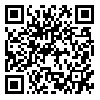Volume 4, Issue 3 (September 2025)
IJER 2025, 4(3): 0-0 |
Back to browse issues page
Download citation:
BibTeX | RIS | EndNote | Medlars | ProCite | Reference Manager | RefWorks
Send citation to:



BibTeX | RIS | EndNote | Medlars | ProCite | Reference Manager | RefWorks
Send citation to:
Nouri Z, Adelnia F. (2025). The Effectiveness of Play Therapy Based on Cognitive-Behavioral Approach on Attributional Styles and Academic Enthusiasm in Children with Math Disabilities. IJER. 4(3),
URL: http://ijer.hormozgan.ac.ir/article-1-330-en.html
URL: http://ijer.hormozgan.ac.ir/article-1-330-en.html
1- Department of Educational Sciences, Payame Noor University, Tehran, Iran , z.nouri@pnu.ac.ir
2- Master's student of Payame Noor University, Tehran, Iran
2- Master's student of Payame Noor University, Tehran, Iran
Abstract: (727 Views)
Objective: The present investigation was undertaken with the objective of assessing the efficacy of game therapy grounded in a cognitive-behavioral framework concerning attributional styles and academic enthusiasm among students exhibiting mathematical disabilities.
Methods: The methodological approach employed in this study was semi-experimental, utilizing a pre-test and post-test design that encompassed two groups: an experimental group and a control group. The statistical population comprised all male elementary school students diagnosed with mathematical deficiencies who sought evaluation at the assessment, education, and developmental-educational rehabilitation center in Kish during 2024 year. From this population, 30 students were randomly selected and allocated into two groups, namely the experimental group (15 participants) and the control group (15 participants). Data collection was facilitated through the administration of an attributional style questionnaire and an academic enthusiasm questionnaire. The implementation of play therapy rooted in the cognitive-behavioral approach was conducted with the experimental group, while the control group received no intervention.
Results: The acquired data were subjected to analysis utilizing the multivariate covariance test. The findings indicated that intervention had a statistically significant impact on enhancing the overall score of academic enthusiasm, augmenting the total score of optimistic attribution style, and reducing the total score of pessimistic attribution style. Furthermore, the results revealed that the intervention significantly influenced the improvement of the behavioral, emotional, and cognitive components of enthusiasm.
Conclusions: In light of the findings, it can be inferred that professionals and planners within the domain of psychological health may advance efforts to mitigate learning disorders and empower students through the implementation of targeted intervention programs.
Methods: The methodological approach employed in this study was semi-experimental, utilizing a pre-test and post-test design that encompassed two groups: an experimental group and a control group. The statistical population comprised all male elementary school students diagnosed with mathematical deficiencies who sought evaluation at the assessment, education, and developmental-educational rehabilitation center in Kish during 2024 year. From this population, 30 students were randomly selected and allocated into two groups, namely the experimental group (15 participants) and the control group (15 participants). Data collection was facilitated through the administration of an attributional style questionnaire and an academic enthusiasm questionnaire. The implementation of play therapy rooted in the cognitive-behavioral approach was conducted with the experimental group, while the control group received no intervention.
Results: The acquired data were subjected to analysis utilizing the multivariate covariance test. The findings indicated that intervention had a statistically significant impact on enhancing the overall score of academic enthusiasm, augmenting the total score of optimistic attribution style, and reducing the total score of pessimistic attribution style. Furthermore, the results revealed that the intervention significantly influenced the improvement of the behavioral, emotional, and cognitive components of enthusiasm.
Conclusions: In light of the findings, it can be inferred that professionals and planners within the domain of psychological health may advance efforts to mitigate learning disorders and empower students through the implementation of targeted intervention programs.
Type of Study: Original |
Subject:
Educational Psychology
Received: 2025/01/13 | Accepted: 2025/07/21 | Published: 2025/09/1
Received: 2025/01/13 | Accepted: 2025/07/21 | Published: 2025/09/1
Send email to the article author
| Rights and permissions | |
 |
This work is licensed under the Creative Commons - Attribution 4.0 International. |






